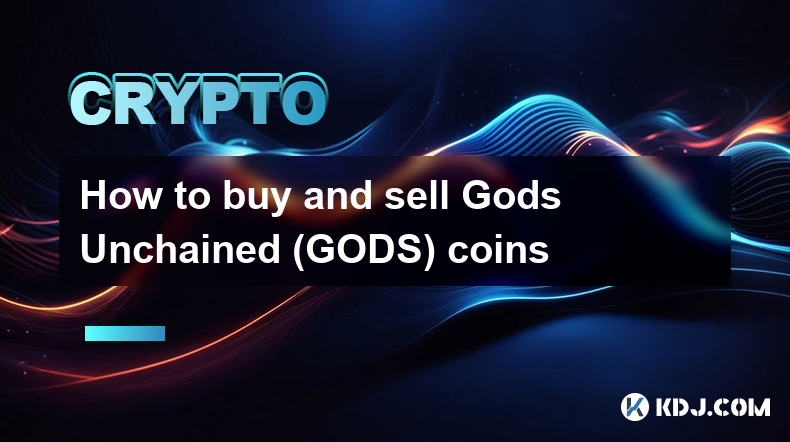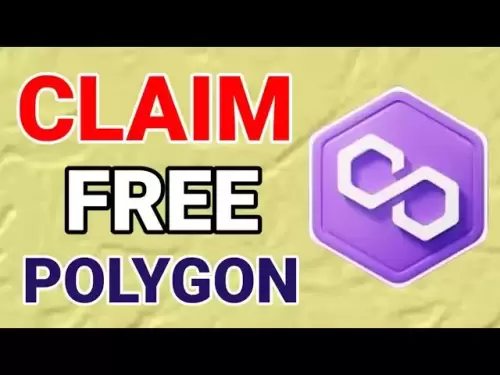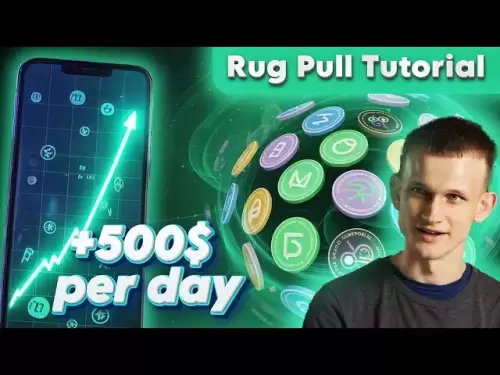-
 Bitcoin
Bitcoin $106,754.6083
1.33% -
 Ethereum
Ethereum $2,625.8249
3.80% -
 Tether USDt
Tether USDt $1.0001
-0.03% -
 XRP
XRP $2.1891
1.67% -
 BNB
BNB $654.5220
0.66% -
 Solana
Solana $156.9428
7.28% -
 USDC
USDC $0.9998
0.00% -
 Dogecoin
Dogecoin $0.1780
1.14% -
 TRON
TRON $0.2706
-0.16% -
 Cardano
Cardano $0.6470
2.77% -
 Hyperliquid
Hyperliquid $44.6467
10.24% -
 Sui
Sui $3.1128
3.86% -
 Bitcoin Cash
Bitcoin Cash $455.7646
3.00% -
 Chainlink
Chainlink $13.6858
4.08% -
 UNUS SED LEO
UNUS SED LEO $9.2682
0.21% -
 Avalanche
Avalanche $19.7433
3.79% -
 Stellar
Stellar $0.2616
1.64% -
 Toncoin
Toncoin $3.0222
2.19% -
 Shiba Inu
Shiba Inu $0.0...01220
1.49% -
 Hedera
Hedera $0.1580
2.75% -
 Litecoin
Litecoin $87.4964
2.29% -
 Polkadot
Polkadot $3.8958
3.05% -
 Ethena USDe
Ethena USDe $1.0000
-0.04% -
 Monero
Monero $317.2263
0.26% -
 Bitget Token
Bitget Token $4.5985
1.68% -
 Dai
Dai $0.9999
0.00% -
 Pepe
Pepe $0.0...01140
2.44% -
 Uniswap
Uniswap $7.6065
5.29% -
 Pi
Pi $0.6042
-2.00% -
 Aave
Aave $289.6343
6.02%
How to buy and sell Gods Unchained (GODS) coins
To purchase Gods Unchained (GODS), choose a reputable cryptocurrency exchange with a track record of security, liquidity, and customer support, such as Binance, Coinbase, Kraken, Gemini, or Huobi.
Dec 23, 2024 at 09:32 pm

Key Points
- Understanding Gods Unchained (GODS) and Its Value
- Selecting a Reputable Cryptocurrency Exchange
- Creating an Account and Verifying Identity
- Funding the Account with Fiat Currency or Cryptocurrency
- Placing a Buy Order for Gods Unchained (GODS)
- Confirming the GODS Purchase and Transferring to a Wallet
- Placing a Sell Order for Gods Unchained (GODS)
- Confirming the GODS Sale and Transferring Proceeds
How to Buy Gods Unchained (GODS) Coins
1. Understanding Gods Unchained (GODS) and Its Value
Gods Unchained (GODS) is the in-game currency and governance token for the Gods Unchained trading card game, a digital card game built on the Ethereum blockchain. GODS tokens allow players to purchase cards, build decks, and participate in tournaments and events. As the game grows and attracts more players, the demand for GODS tokens is likely to increase.
2. Selecting a Reputable Cryptocurrency Exchange
There are numerous cryptocurrency exchanges available, but not all of them offer Gods Unchained (GODS) trading. Choose a reputable exchange with a track record of security, liquidity, and customer support. Some popular options include:
- Binance
- Coinbase
- Kraken
- Gemini
- Huobi
3. Creating an Account and Verifying Identity
To create an account on a cryptocurrency exchange, provide basic information such as your name, email address, and country of residence. Many exchanges also require identity verification by submitting identification documents such as a passport or driver's license. This process helps prevent fraud and money laundering.
4. Funding the Account with Fiat Currency or Cryptocurrency
Once your account is created and verified, you need to fund it with the desired amount of fiat currency (e.g., USD, EUR) or cryptocurrency (e.g., BTC, ETH). Most exchanges allow deposits through bank transfers, credit cards, or other methods. Choose the option that is most convenient for you.
5. Placing a Buy Order for Gods Unchained (GODS)
Navigate to the trading page for Gods Unchained (GODS) on the exchange of your choice. Enter the amount of GODS you want to buy and select the type of order you want to place. Market orders are executed immediately at the best available price, while limit orders allow you to specify the price at which you wish to buy.
6. Confirming the GODS Purchase and Transferring to a Wallet
Once your buy order is placed, the exchange will process the transaction. Once the GODS have been purchased, they will be credited to your exchange wallet. To increase security, consider transferring your GODS to a hardware wallet or a secure software wallet.
How to Sell Gods Unchained (GODS) Coins
7. Placing a Sell Order for Gods Unchained (GODS)
To sell Gods Unchained (GODS), navigate to the trading page on the exchange where you hold your GODS. Enter the amount of GODS you want to sell and select the type of order you want to place. Market orders sell immediately at the best available price, while limit orders allow you to specify the price at which you wish to sell.
8. Confirming the GODS Sale and Transferring Proceeds
Once your sell order is placed, the exchange will process the transaction. Once the GODS have been sold, the proceeds will be credited to your exchange wallet. You can then withdraw the proceeds to your bank account or a cryptocurrency wallet of your choice.
Frequently Asked Questions
Q: What is the price of Gods Unchained (GODS)?
A: The price of GODS fluctuates based on market conditions. Check the latest price on a reputable cryptocurrency exchange or a price tracking website.
Q: Can I store Gods Unchained (GODS) in a hardware wallet?
A: Yes, you can store GODS in a hardware wallet for increased security.
Q: What are the risks of trading Gods Unchained (GODS)?
A: As with any cryptocurrency, trading GODS involves risks such as price volatility, exchange security breaches, and market manipulation.
Q: How do I know if an exchange is reputable?
A: Look for exchanges with a good track record, strong security measures, high liquidity, and positive customer reviews.
Q: What are the advantages of holding Gods Unchained (GODS)?
A: GODS holders benefit from voting rights in the Gods Unchained governance system, access to exclusive rewards and perks, and the potential for appreciation as the game grows.
Disclaimer:info@kdj.com
The information provided is not trading advice. kdj.com does not assume any responsibility for any investments made based on the information provided in this article. Cryptocurrencies are highly volatile and it is highly recommended that you invest with caution after thorough research!
If you believe that the content used on this website infringes your copyright, please contact us immediately (info@kdj.com) and we will delete it promptly.
- Parataxis Holdings & Bridge Biotherapeutics: A Bitcoin Treasury Play in South Korea
- 2025-06-20 20:25:12
- Pi Network Price Prediction: Navigating June 2025's Uncertainties
- 2025-06-20 20:25:12
- AI Chip Maker Cerebras Hacked: Crypto Scam Alert!
- 2025-06-20 20:45:13
- dYdX Surge Program: Leveling Up DeFi Trading with Incentives
- 2025-06-20 20:45:13
- Bitcoin Breakout Watch: Can BTC Surge to $100K and Beyond?
- 2025-06-20 20:50:12
- Blockchain, Climate Action, Global Platform: BigWater Protocol Leading the Charge
- 2025-06-20 21:05:12
Related knowledge

How to customize USDT TRC20 mining fees? Flexible adjustment tutorial
Jun 13,2025 at 01:42am
Understanding USDT TRC20 Mining FeesMining fees on the TRON (TRC20) network are essential for processing transactions. Unlike Bitcoin or Ethereum, where miners directly validate transactions, TRON uses a delegated proof-of-stake (DPoS) mechanism. However, users still need to pay bandwidth and energy fees, which are collectively referred to as 'mining fe...

USDT TRC20 transaction is stuck? Solution summary
Jun 14,2025 at 11:15pm
Understanding USDT TRC20 TransactionsWhen users mention that a USDT TRC20 transaction is stuck, they typically refer to a situation where the transfer of Tether (USDT) on the TRON blockchain has not been confirmed for an extended period. This issue may arise due to various reasons such as network congestion, insufficient transaction fees, or wallet-rela...

How to cancel USDT TRC20 unconfirmed transactions? Operation guide
Jun 13,2025 at 11:01pm
Understanding USDT TRC20 Unconfirmed TransactionsWhen dealing with USDT TRC20 transactions, it’s crucial to understand what an unconfirmed transaction means. An unconfirmed transaction is one that has been broadcasted to the blockchain network but hasn’t yet been included in a block. This typically occurs due to low transaction fees or network congestio...

What to do if USDT TRC20 transfers are congested? Speed up trading skills
Jun 13,2025 at 09:56am
Understanding USDT TRC20 Transfer CongestionWhen transferring USDT TRC20, users may occasionally experience delays or congestion. This typically occurs due to network overload on the TRON blockchain, which hosts the TRC20 version of Tether. Unlike the ERC20 variant (which runs on Ethereum), TRC20 transactions are generally faster and cheaper, but during...

The relationship between USDT TRC20 and TRON chain: technical background analysis
Jun 12,2025 at 01:28pm
What is USDT TRC20?USDT TRC20 refers to the Tether (USDT) token issued on the TRON blockchain using the TRC-20 standard. Unlike the more commonly known ERC-20 version of USDT (which runs on Ethereum), the TRC-20 variant leverages the TRON network's infrastructure for faster and cheaper transactions. The emergence of this version came as part of Tether’s...

How to monitor large USDT TRC20 transfers? Tracking tool recommendation
Jun 12,2025 at 06:49pm
Understanding USDT TRC20 TransfersTether (USDT) is one of the most widely used stablecoins in the cryptocurrency ecosystem. It exists on multiple blockchains, including TRON (TRC20). The TRC20 version of USDT operates on the TRON network and offers faster transaction speeds and lower fees compared to its ERC-20 counterpart on Ethereum. When discussing l...

How to customize USDT TRC20 mining fees? Flexible adjustment tutorial
Jun 13,2025 at 01:42am
Understanding USDT TRC20 Mining FeesMining fees on the TRON (TRC20) network are essential for processing transactions. Unlike Bitcoin or Ethereum, where miners directly validate transactions, TRON uses a delegated proof-of-stake (DPoS) mechanism. However, users still need to pay bandwidth and energy fees, which are collectively referred to as 'mining fe...

USDT TRC20 transaction is stuck? Solution summary
Jun 14,2025 at 11:15pm
Understanding USDT TRC20 TransactionsWhen users mention that a USDT TRC20 transaction is stuck, they typically refer to a situation where the transfer of Tether (USDT) on the TRON blockchain has not been confirmed for an extended period. This issue may arise due to various reasons such as network congestion, insufficient transaction fees, or wallet-rela...

How to cancel USDT TRC20 unconfirmed transactions? Operation guide
Jun 13,2025 at 11:01pm
Understanding USDT TRC20 Unconfirmed TransactionsWhen dealing with USDT TRC20 transactions, it’s crucial to understand what an unconfirmed transaction means. An unconfirmed transaction is one that has been broadcasted to the blockchain network but hasn’t yet been included in a block. This typically occurs due to low transaction fees or network congestio...

What to do if USDT TRC20 transfers are congested? Speed up trading skills
Jun 13,2025 at 09:56am
Understanding USDT TRC20 Transfer CongestionWhen transferring USDT TRC20, users may occasionally experience delays or congestion. This typically occurs due to network overload on the TRON blockchain, which hosts the TRC20 version of Tether. Unlike the ERC20 variant (which runs on Ethereum), TRC20 transactions are generally faster and cheaper, but during...

The relationship between USDT TRC20 and TRON chain: technical background analysis
Jun 12,2025 at 01:28pm
What is USDT TRC20?USDT TRC20 refers to the Tether (USDT) token issued on the TRON blockchain using the TRC-20 standard. Unlike the more commonly known ERC-20 version of USDT (which runs on Ethereum), the TRC-20 variant leverages the TRON network's infrastructure for faster and cheaper transactions. The emergence of this version came as part of Tether’s...

How to monitor large USDT TRC20 transfers? Tracking tool recommendation
Jun 12,2025 at 06:49pm
Understanding USDT TRC20 TransfersTether (USDT) is one of the most widely used stablecoins in the cryptocurrency ecosystem. It exists on multiple blockchains, including TRON (TRC20). The TRC20 version of USDT operates on the TRON network and offers faster transaction speeds and lower fees compared to its ERC-20 counterpart on Ethereum. When discussing l...
See all articles

























































































